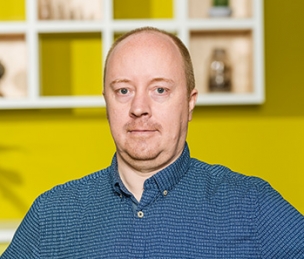Displaying 1 - 8 of 8
-
Trilsbeek, P., Kung, S., & Seyfeddinipur, M. (2016). Case study: Citing archived resources in a Language publication. Talk presented at the 2nd Workshop on Data Citation & Attribution in Linguistics. Austin, TX, USA. 2016-04-08 - 2016-04-10.
Additional information
http://hdl.handle.net/10125/40022 -
Trilsbeek, P., & Windhouwer, M. (2016). FLAT: A CLARIN-compatible repository solution based on Fedora Commons. Poster presented at CLARIN Annual Conference 2016, Aix-en-Provence, France.
-
Trilsbeek, P. (2016). UNESCO memory of the world: Selected data collections of the world’s language diversity at The Language Archive. Talk presented at the 15th session of the United Nations Permanent Forum on Indigenous Issues. New York, NY, USA. 2016-05-09 - 2016-05-20.
-
Drude, S., Trilsbeek, P., & Broeder, D. (2012). Language documentation and digital humanities: The (DoBeS) Language Archive. Talk presented at International Digital Humanities Congress 2012. Hamburg. 2012-07-13 - 2012-07-21.
Additional information
http://lecture2go.uni-hamburg.de/konferenzen/-/k/13991Files private
Request files -
Drude, S., Broeder, D., & Trilsbeek, P. (2012). Sustainable solutions for endangered languages data: The Language Archive. Talk presented at Charting Vanishing Voices: A Collaborative Workshop to Map Endangered Oral Cultures. World Oral Literature Project 2012 Workshop. CRASSH, Cambridge. 2012-06-30 - 2012-06-30.
Files private
Request files -
Drude, S., Broeder, D., Trilsbeek, P., & Wittenburg, P. (2012). The Language Archive - a new hub for language resources. Poster presented at LREC 2012: 8th International Conference on Language Resources and Evaluation, Istanbul, Turkey.
-
Ringersma, J., & Trilsbeek, P. (2010). Metadata and language-resources. Documentation and Archival Training Workshop. Guwahati, Assam, India, 2010-02-04 - 2010-02-08.
Abstract
Teaching material on Metadata for the Documentation and Archival Training Workshop Guwahati, Assam, India -
Wittenburg, P., Trilsbeek, P., & Lenkiewicz, P. (2010). Large multimedia archive for world languages. Talk presented at the ACM Workshop on Searching Spontaneous Conversational Speech [SSCS 2010]. Firenze, Italy. 2010-10-25 - 2010-10-29. doi:10.1145/1878101.1878113.
Abstract
In this paper, we describe the core pillars of a large archive oflanguage material recorded worldwide partly about languages that are highly endangered. The bases for the documentation of these languages are audio/video recordings which are then annotated at several linguistic layers. The digital age completely changed the requirements of long-term preservation and it is discussed how the archive met these new challenges. An extensive solution for data replication has been worked out to guarantee bit-stream preservation. Due to an immediate conversion of the incoming data to standards -based formats and checks at upload time lifecycle management of all 50 Terabyte of data is widely simplified. A suitable metadata framework not only allowing users to describe and discover resources, but also allowing them to organize their resources is enabling the management of this amount of resources very efficiently. Finally, it is the Language Archiving Technology software suite which allows users to create, manipulate, access and enrich all archived resources given that they have access permissions.

Share this page